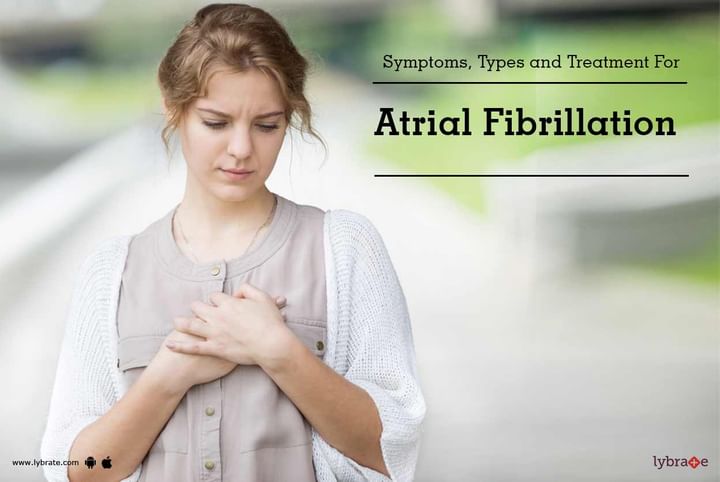Symptoms, Types and Treatment For Atrial Fibrillation
We all know about the heartbeat, which is produced by the opening and closing of the valves in the heart, which in turn controls our blood flow. There is a regular pattern to this beat, and when, due to various reasons, it becomes irregular, it is known as arrhythmia. Atrial fibrillation, known shortly as AFib, is one of the common types of arrhythmia.
Why AFib: The heart has an electrical impulse system, which controls the opening/closing of its valves. Due to various changes, be it lifestyle, dietary, or regular wear and tear, this electrical system is affected and so the valves do not function properly. This leads to altered rhythm, and when it happens on the right side of the heart, in the valves between the two atria, it is known as atrial fibrillation.
Signs and Symptoms: It is not something which shows up as soon as the onset happens. It is a gradual condition, and many people with AFib may go for months with no symptoms. There could be general symptoms like fatigue and headaches. Gradually, more symptoms like heart palpitations, shortness of breath, dizziness, occasional chest pain, or fainting set in. It is usually when workup for some other disease is being done.
Monitoring the pulse or heartbeat is one of the best ways to keep a check on the condition.
Types: There are different forms of it – paroxysmal, persistent, and permanent. In the first one, there are brief bursts of AFib lasting less than 7 days. With gradual progression, symptoms are more frequent and last longer, converting into persistent AFib, which lasts longer than 7 days. If the condition is longstanding and the doctor (as well as the patient) have decided not to treat it, it is permanent AFib.
Risk Factors: The chances of developing AFib increase with family history, age, obesity, smoking, hyperthyroidism, chronic lung diseases, and sleep apnea.
Living with AFib: It is a longstanding condition, and the following precautions are necessary, which are generally heart-healthy.
-
Quit Smoking: In addition to the multiple benefits of quitting, managing AFib is one.
-
Diet Changes: Change to a heart-healthy diet with whole grains, fresh fruits and vegetables, increased fish oils, reduced fat, reduced salt and sugar etc.
-
Work It Out: Get into an exercise regimen. Discuss with your doctor to identify and agree on the type and level of exercise. This helps manage weight and stress, both essential for controlling AFib.
-
Manage Alcohol Consumption: Avoid excess consumption of alcoholic beverages. Avoid them completely if they trigger symptoms.
If you have the risk factors for AFib, implementing these changes earlier than the onset of symptoms can help delay progress and reduce severity of the symptoms. Consult an Expert & get answers to your questions!



+1.svg)
